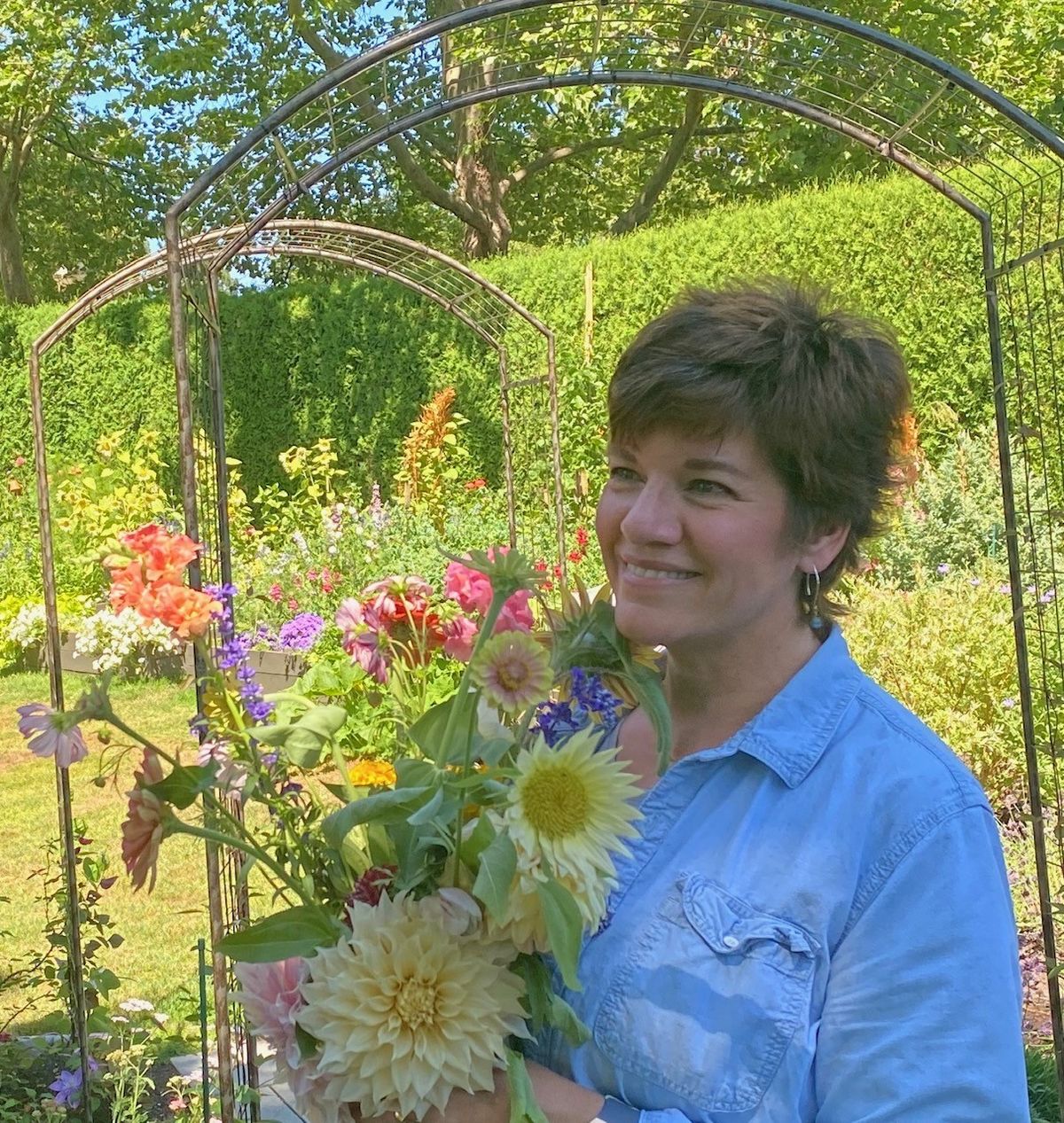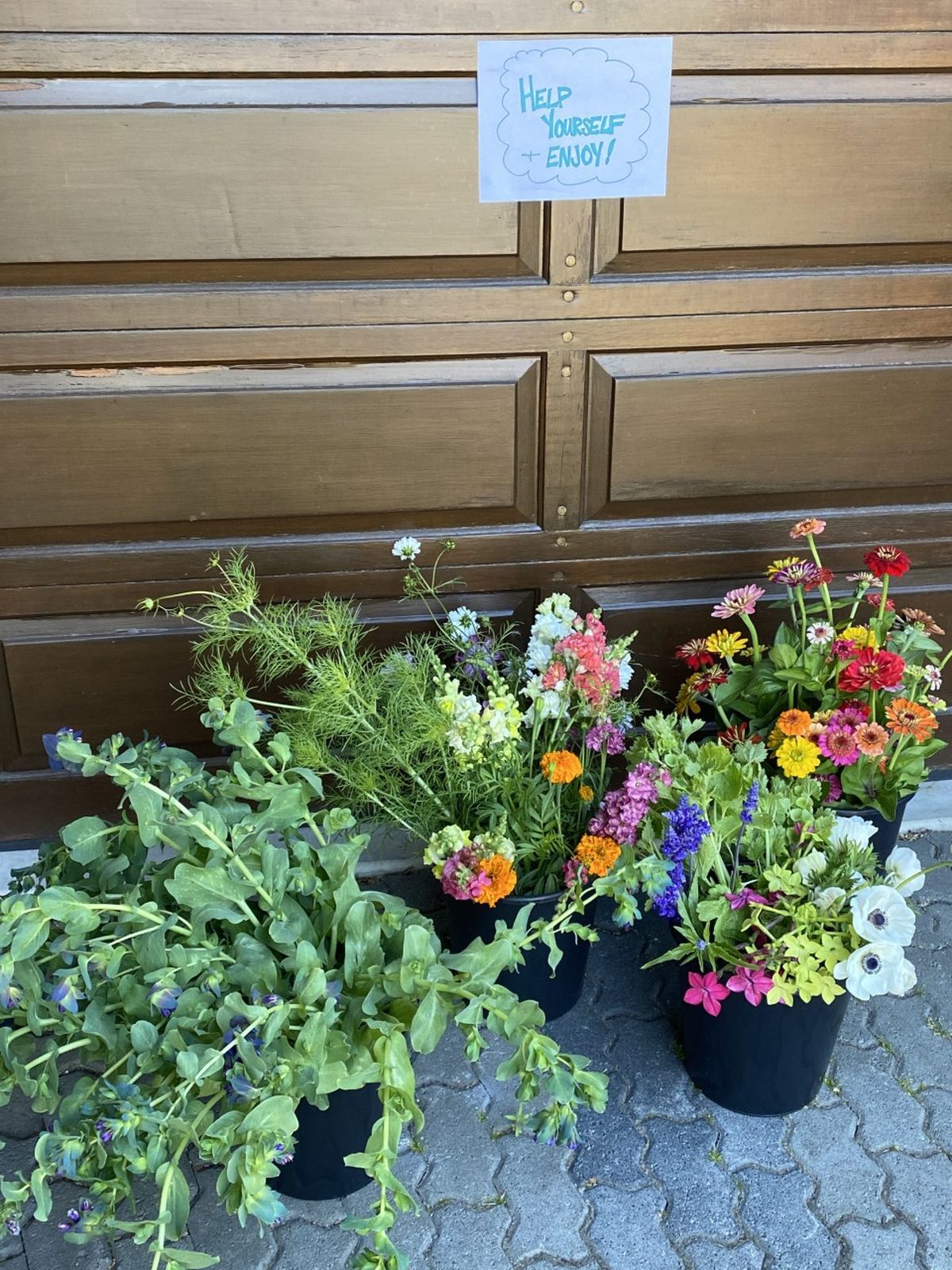Pandemic projects: Dream of becoming flower farmer blossoms

When the pandemic struck, Loreen McFaul took the adage “bloom where you are planted” to heart.
“One thing I know about myself is that I have to do something creative every day,” she said.
During the winter, she’d taken an online course on flower farming. McFaul said the shutdown enabled her to fast-forward her dream of growing cut flowers to spread joy and beauty to others.

“I became a flower farmer, a side-hustle to my jobs as executive director of the Friends of the Centennial Trail and a nonprofit consultant,” she said. “I’ve always enjoyed gardening, but from a landscaping lens. I’d never gotten into the world of seed germination.”
But soon her basement filled with seedlings thriving under grow lights.
By the time spring began peeking around the corner, her husband, Greg McFaul, had time to help build the flower farm infrastructure in their South Hill yard.
“He usually travels more than 100,000 miles a year by plane for his IT job,” McFaul said.
With travel halted and his gym closed, Greg was eager to help with the project. He built six cedar raised beds and stained them to match their house. He also tunneled through the yard to install drip irrigation and tweak the system to make sure plants were correctly watered.
Then Loreen McFaul planted flower seedlings and something extra.
“Thanks to COVID, I felt I should add some food to our beauty and planted veggies seedlings too, adding a Victory Garden touch,” McFaul said. “The project wasn’t planned, but it brought some positivity to the scary time last spring, and we were in it together.”
Everything was planted by May 15, and by early June she added dahlias and tomatoes.
And then? Well things blossomed.
“By the second week of July I had more flowers than I knew what to do with,” she said. “Part of growing cut flowers is you have to cut them or they go to seed.”
So, she shared them with family, friends and neighbors. Twice a week, she’d cut flowers, placing them in buckets in the shade, telling her neighbors to help themselves. She made bouquets and birthday party arrangements. Then she took a bucket of blooms to Rocket Market. The owner loved them and invited her to sell mixed bouquets at the store.
“I was thrilled!” McFaul said. “From mid-June to early September I sold nearly 100 mixed bouquets with my ‘Daisies in May’ label.
She named the business in honor of her support staff, her two Westies, Daisy and Mae.
McFaul said she feels like she’s earned another college degree.
“For decades the majority of cut flowers used by florists and sold in grocery stores, came from South America. They’re loaded with chemicals to keep them alive to survive 3,000-mile flights, and make a huge carbon footprint,” she explained.
“The push for locally-grown flowers is centered around organic, sustainable practices and like locally-grown food, is better for the environment. I became a member of the Association of Specialty Cut Flower Growers and am learning a ton about their work to take back this industry.”
Last month the McFauls downsized to a smaller home on 5 acres. McFaul plans to expand her flower farm.
“My goal is to plant half acre at a time,” she said.
Next spring you’ll once again find flowers from Daisies in May at the Rocket Market.
“I’ve always believed something good comes out of every challenging situation,” McFaul said. “We feel blessed with our health and flower farming has been a creative respite during this very strange year.”